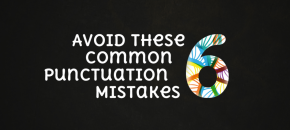Quick English: Using the Apostrophe
The apostrophe ( ' ) is an often misused piece of punctuation. Sometimes even native speakers have trouble with it. When you're first learning English, it is good to brush up on the specific rules of punctuation, especially that of the apostrophe because it is so often misunderstood.
We have put together this guide to the apostrophe to help you understand the different uses and rules when it comes to the confusing apostrophe.

Contractions
A contraction is a combination of two words with letters removed. The apostrophe is used in contractions to replace the letters that have been omitted. In English, there aren't many contractions, and they usually involve verbs.
The most common contractions are...
| Apostrophes using "not" | Apostrophes using "is" |
| can't = can + not shouldn't = should + not won't = will + not |
he's = he + is she's = she + is there's = there + is it's = it + is |
| Apostrophes using "had" (or "would") | Apostrophes using "will" |
| he'd = he + had (or would) she'd = she + had (or would) they'd = they + had (or would) we'd = we + had (or would) I'd = I + had (or would) |
he'll = he + will she'll = she + will we'll = we + will I'll = I + will it'll = it + will |
Hand-picked related content: HOW TO TALK ABOUT YOURSELF IN ENGLISH
Possessives
Apostrophes are also used in the possessive form, which shows ownership. This can be a bit confusing, as the rules change depending on how the word is being spelled.
A possessive is formed by adding 's to the end of a word.
Martin's glasses
The tree's leaves
The children's classroom
However, when a plural noun already ends in s, the word only needs an apostrophe at the end. When you pronounce these words, they are pronounced with only one S.
The girls' plans
The ladies' room
The cats' toys
Note that singular words that happen to end in s will still take 's.
The class's grades
The bus's arrival
Some speakers are not sure whether to add an 's proper nouns that end in s. A good rule is to write the extra s if you would pronounce it, and to leave it out if you wouldn't.
Mr. Jones's house (read: Mr. Jones-es house; include the s)
Mr. Hastings' backyard (read: Mr Hastings backyard; don't include the s)
Chris's lunch (read: Chris-es lunch; include the s)
One of the most confusing aspects of apostrophe use comes up when there are homophone sets which include apostrophes. Some of these include its/it's; they're/there/their; and you're/your.
We hope this guide has helped clear up some of the confusion about the use of apostrophes. Do you still have questions? Let us know in the comments.




